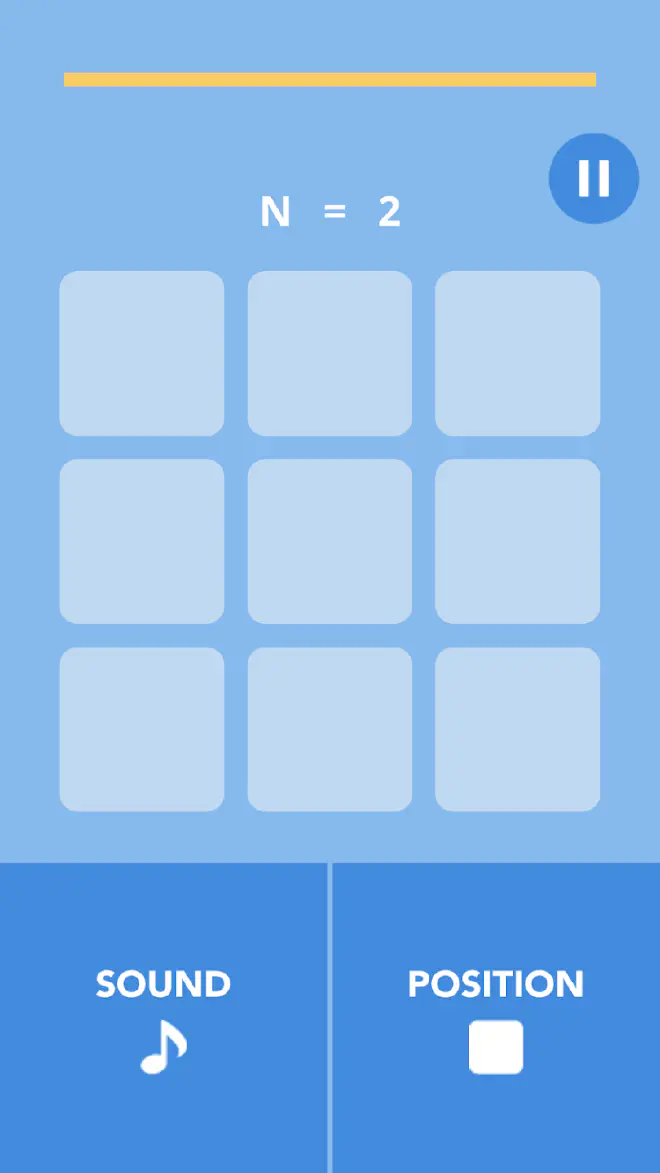- Blog/
Brain Training for Musicians: N-Back Training
Composing or performing music requires Fluid Intelligence.
Fluid intelligence refers to pure intelligence that cannot be acquired through learning, encompassing reasoning ability, deriving cause-and-effect, problem-solving, concept formation, and momentary memory capacity.
If one can enhance their fluid intelligence, it becomes easier to compose music and proficiently play with less practice. (Artistic creativity is unrelated to fluid intelligence)
One particularly important intelligence component for musicians is Working Memory. Working memory functions as a mental workspace for processing information, temporarily storing and making limited information accessible. It is akin to Cache memory in a computer, which temporarily stores and transfers data before it is processed by the CPU.
Individuals with a larger working memory capacity have superior momentary memory and continuous abstract abilities, advantageous in imagining systematic concepts or expressing them spontaneously.
However, as working memory usually doesn’t get intentionally trained, it demands significant effort and patience in composing or performing music, often leading to feelings of powerlessness and loss in recalling and retaining musical ideas.
Unlike Fluid Intelligence (IQ), working memory capacity greatly influences academic achievements
Working memory is also essential for reasoning, problem-solving, and other uses of fluid intelligence.
Although fluid intelligence is traditionally believed to be untrainable, humans don’t fully utilize their innate fluid intelligence, leading to its underestimation. Conventional IQ Tests cannot measure or train working memory, which requires instantaneous processing.
Below are methods to train working memory.
Abilities such as sight-reading music, improvising imagined music, and transcribing heard melodies to sheet music are highly correlated with working memory.
Therefore, training in sight-reading, sight-singing, and ear training can improve working memory to some extent.
Secondly, the increasingly popular method in academia for intelligence enhancement is Dual N-Back Training. Dual N-Back Training involves hearing a series of letters while simultaneously seeing shapes, and identifying if the current shape and letter match those from ‘N’ steps earlier.
Unlike traditional intelligence training methods such as backward number recall, puzzle solving, and absolute pitch tests (sound memory tests), problems in Dual N-Back Training continuously appear at regular intervals. Unlike conventional tests that require writing down answers after a question, Dual N-Back Training demands identifying the answer from ‘N’ steps earlier while new problems are being presented.
It requires instantaneous and intuitive memory and judgment, effectively using various fluid intelligence skills under pressure to find the correct answers.
This training simulates the stress of performing an unfamiliar score flawlessly in front of an audience, thereby being a highly effective way to improve working memory despite the associated mental stress.
International studies have shown that this training increases working memory capacity, yielding benefits such as (reviews: Morrison & Chein, 2011; Salminen, Strobach & Schubert, 2012):
- Increased performance on untrained short-term memory measures.
- Enhanced multi-tasking – attentional selection between two sets of information associated with different tasks.
- Improved selective attention – detaching from irrelevant items and attending to new relevant ones.
- Enhanced ability to shield against interfering information.
- Improved episodic memory.
- Better reading comprehension.
- Enhanced verbal learning and everyday attention in older adults (60+).
- Reduced ADHD symptoms.
- Improvements in multiple sclerosis – everyday memory, quality of life.
- Improvements for schizophrenia patients – everyday memory, quality of life.
- Improvements for frontal lobe stroke patients.
Below are apps for Dual N-Back Training. Training 20 times a day for over 20 days can be effective, and with statistical support, one can measure their improvement.

Starting from N=2, the level increases upon reaching a certain score, and decreases if not met, allowing everyone to tailor the training to their working memory capacity.
Despite having an IQ of 160 (standard deviation 24), I initially struggled with N=3, indicating that fluid intelligence cannot enhance working memory.
Conversely, people with strong working memory can quickly utilize their fluid intelligence to a high level by merely avoiding mental laziness.
After a week of training, reaching N=7, I noticed clearer distinction in instrument parts while listening to music, like a fog lifting from my mind.
While some experienced a 10%-20% IQ increase after N-Back Training, others did not, showing that merely increasing Cache Memory doesn’t necessarily improve performance.
Learning to use mental workspace efficiently through N-Back Training requires effort to apply it in daily life. One should not spare time on deep thinking, contemplation, imagination, memory, reasoning, and mental arithmetic.
Realizing how to utilize one’s intelligence is crucial. While human fluid intelligence is innate, everyone possesses similar levels. The difference lies in not knowing how to utilize it; geniuses might have just luckily discovered this and enjoyed the pleasure of using their minds.
Musicians, more than any other profession, need to use a wide range of intelligences. I hope this article helps enhance your abilities.
